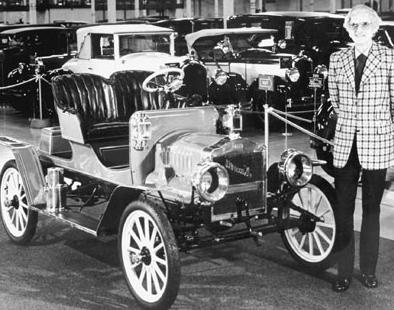Harrah’s Casino Corporation has more gambling facilities across the United States than any other casino company. There is a Harrah’s casino in each major casino jurisdiction and in many other places as well – Atlantic City, Laughlin, Lake Tahoe, Las Vegas, Reno; the states of Mississippi, Louisiana, Missouri, and Colorado; and New Zealand. Harrah’s operates many Native American casinos as well. Until the Hilton casino group (Park Place Gaming) and Caesars Casinos merged in 1999, Harrah’s was the biggest gambling company in the world. Harrah’s gambling revenues are well over $1 billion a year. Harrah’s markets to middle America and features many tour packages for its customers.
The founding father of Harrah’s casinos started his gambling activities at Venice Beach, California. William F. Harrah was born in southern California in 1911. His father ran bingo halls and carnival gambling games in Venice Beach. Father and son discovered that gambling activities in a jurisdiction that really did not want gambling could be rather tenuous. The Depression years were also hard on them. They sought to practice their business activities elsewhere. When Nevada legalized casino gambling in 1931, it certainly appeared to be the place to go. Both Harrahs came to Reno in 1937, but by the time they did, young Bill had bought out his father’s interest in the business. Bill Harrah first opened a bingo parlor, but then turned to casinos.

William Harrah and his car collection.
Bill Harrah had learned lessons in California that he applied in Reno, lessons that the rest of the casino industry had to also learn if survival in a competitive world was desired. When others were operating downmarket “joints” that sought to extract money from players any way they could, including cheating, Harrah made customer service a top priority. He also was the first to put carpets on the casino floors. He sought to make casinos more respectable by having windows to the outside and by having women dealers. He also took new measures to control all flows of money at a time when other properties were victims of skimming by employees and others.
In 1955, Bill Harrah built a casino on the south shores of Lake Tahoe. He was warned that the location was too remote, but he took the chance that people would enjoy staying near the most beautiful lake in the Sierras. Harrah did find that the casino had a seasonal problem, as winter could restrict travel for all but those coming to the area to ski. In response to the problem, Bill Harrah developed a busing system to bring in players from all over California. This was an innovation that has now been imitated in almost all other U.S. jurisdictions.
Bill Harrah was a solitary owner of his property, and he mixed his private life into the business. He had been indulged by his father from the time he was a small child, and with the casino profits he continued to indulge himself. He was a playboy (he was married seven times), he built personal retreats, and he developed an exquisite collection of automobiles that he maintained as a business expense. As he became older, he neglected his properties, and his excesses affected his bottom-line profits. In desperate need for funds, in 1971 he converted his personal empire into one of the first publicly traded corporate gambling properties. This gave him the funds to develop a high-rise tower at his Lake Tahoe casino. Every room in his tower had windows facing the lake and its surrounding mountains.
His personal excesses hurt his company through the 1970s, however. Harrah’s associates tried to persuade him that he should sell his assets, but he steadfastly refused. Months after he died in 1979, his executive attorney, Mead Dixon, negotiated a deal to sell all of Harrah’s properties to Holiday Inn for $300 million. Much of the money was used to pay estate taxes. Although the price was considered excessive at the time, Holiday Inn was able to realize over $100 million from selling Harrah’s car collection. A new management team led by Holiday’s Michael Rose and Dixon introduced management controls and policies that emphasized both financial responsibility and property upgrades. Existing casinos in Las Vegas and Atlantic City that carried the Holiday Inn name changed their signs to carry the Harrah name, and the empire began to move into every major casino jurisdiction in the United States and many beyond the borders of the country.